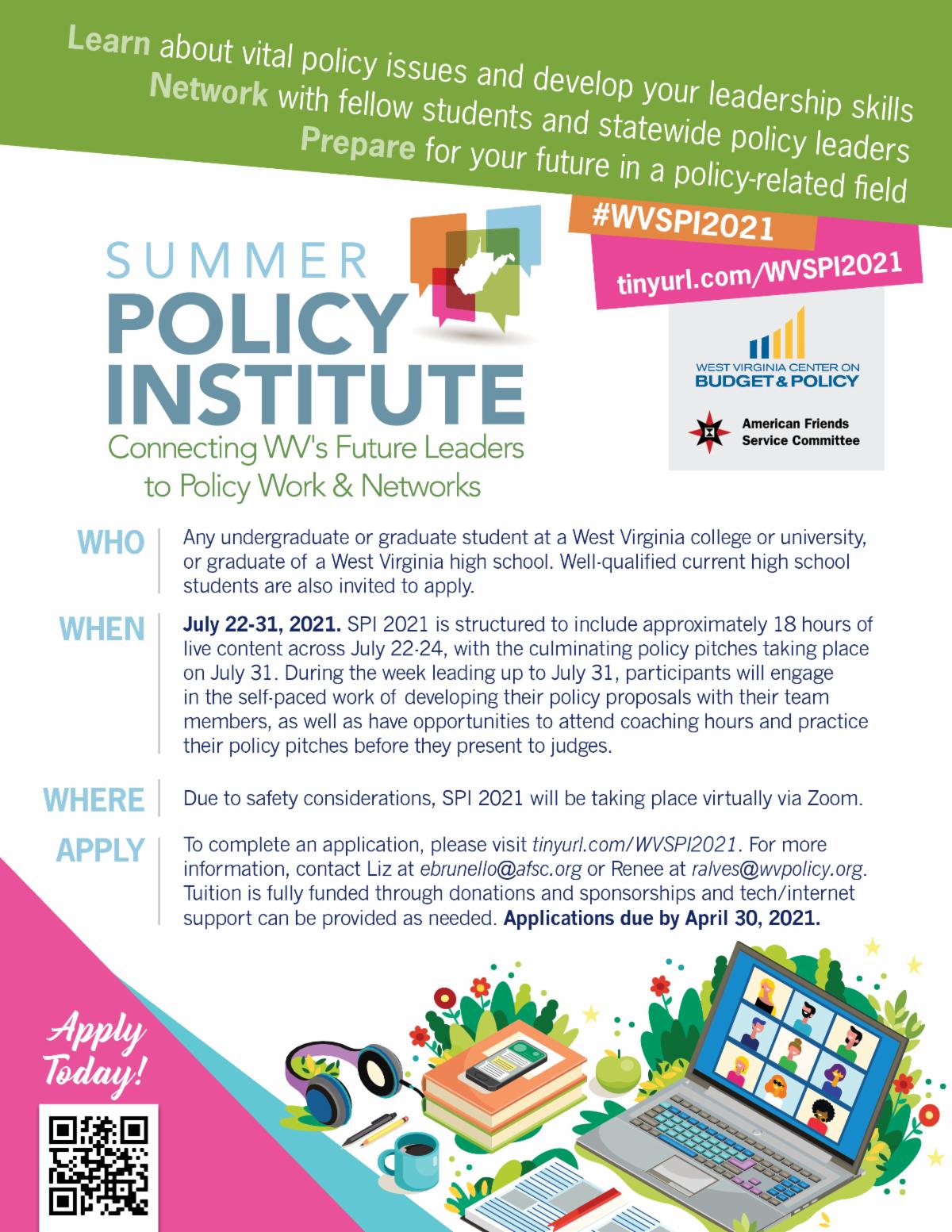On Wednesday, WVCBP hosted its 8th Annual Budget Breakfast where we provided analysis of Governor Justice’s proposed budget as well as a keynote panel highlighting the lessons learned and painful tax cuts necessitated from Kansas’ failed Brownback Tax Experiment.
WVCBP senior policy analyst Sean O’Leary kicked off the event by breaking down Governor Justice’s proposed FY2022 budget and its implications for the state. A recording of his presentation can be viewed here and his PowerPoint slides can be downloaded here.
Sean’s presentation was followed by a keynote panel featuring policymakers Don Hineman & Duane Goossen of Kansas, who were able to provide us a cautionary tale by diving into the repercussions of the Kansas Tax Experiment, the so-called “March to Zero” which sought to eventually eliminate the state’s income tax. You can view a recording of their presentation here.
Here are some quotes from their remarks that cannot be ignored.
From Rep. Hineman:
“As an elected Republican and a former House Majority Leader, my message to my counterparts in West Virginia is simple: if you wish to reduce taxes, understand what you are doing before you do it. Have a plan. Do not expect that simply cutting taxes will magically produce economic prosperity. It did not happen in Kansas and it will not happen elsewhere. Things are never so simple.
“Remember that government at its core is a service provider, and if desperate budget cuts compromise the core missions of state departments and agencies, then the citizens and the businesses of the state will suffer.”
From former Rep. Goossen:
“The idea that the largest source of revenue in the budget structure can be eliminated — taken to zero — without significant offsetting tax increases and debilitating spending cuts is just not credible. The idea sounds wonderful at the beginning, but plays out badly.
“Kansas went down that path and paid a very steep price. I hope West Virginia does not find itself on a similar path. I hope you can benefit from our story, and I wish you much wisdom — and realism — in your upcoming deliberations.”
The full recording of Budget Breakfast can be found here.
Leading up to the legislative session, Sean had spent weeks outlining why eliminating the state personal income tax is misguided and truly harmful policy. You can find links to his numerous blog posts on this subject below:
A broad coalition of 30+ community organizations recently called on West Virginia political leaders to reject cuts to the income tax and instead protect our state’s revenues and public services during this year’s legislative session. You can read the full letter here.
Finally, we welcome you to join us and send a letter of your own urging legislators to prioritize investing in West Virginia’s families and communities over providing a tax cut to the state’s wealthiest here.

State-funded vouchers use existing state funds intended for public schools and instead redirect them for use in non-public, private education programs. Education Savings Accounts (ESAs) are a form of these state-funded vouchers. The primary difference between ESAs and traditional vouchers is that with ESAs, the public funds go directly to the family of the student – rather than the private school – and can be used for almost any educational services and supplies, involving less oversight than with traditional vouchers.
HB 2013, the Hope Scholarship, passed the House on Thursday and is now under consideration in the Senate. Before being voted on in the House, it was amended from its original form to be much more broad and likely more costly than any ESA program in the nation. Of six states that have these programs, four restrict eligibility to limited populations including students with special needs. The program is uncapped in terms of cost or enrollment and with the amendment opening up the program to current homeschool and private school students, direct, significant cuts to public education are inevitable.
West Virginia is well below the national average in overall per-pupil education spending, and this bill will only result in fewer resources for the vast majority of students who remain in public schools.
Ignoring the impacts of socioeconomic factors in educational outcomes ensures that education reform will fail. West Virginia is currently one of only eight states that does not consider poverty when allocating funding.
Fully funding our public schools ensures opportunity for all, not a few.
We invite you to join us and contact your state Senator urging them to oppose HB 2013. You can send them a quick letter here. It will only take a minute of your time.
To learn more about why most West Virginia families do not benefit from ESAs, read our ESA Fast Facts sheet or watch our explainer video.
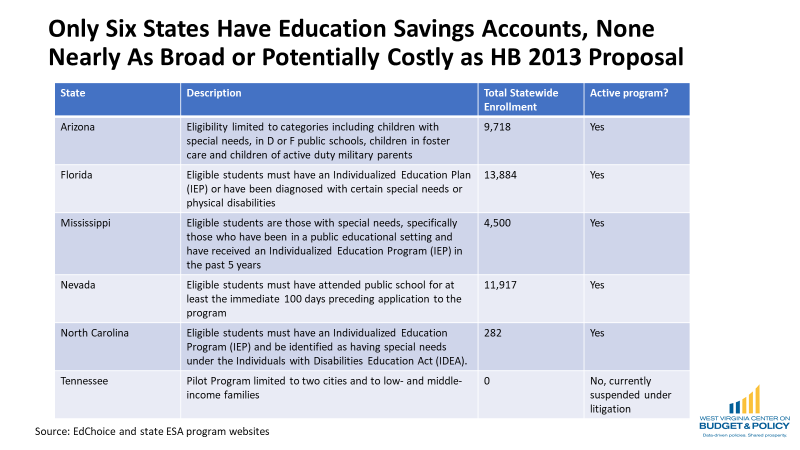
The West Virginia legislative session began on Wednesday, February 10 and legislators have wasted no time rolling out their priority bills. Several bills with major fiscal impacts are being moved quickly, raising worries of whether lawmakers have had adequate time to thoroughly consider individual bills — much less to consider how the interaction of numerous bills could collectively impact funding for public services.
Nowhere is this more apparent than in relation to bills with potentially significant impacts on public school funding. Several bills are moving swiftly and each, if passed, would individually take millions of dollars out of state and local K-12 education funding. Together they could mean devastating budget cuts for school districts, even as schools struggle with the extra costs of improving remote learning offerings, adopting safety procedures that allow buildings to open for in-person classes, and accommodating students who have faced learning challenges due to the pandemic.
Our newest blog explores the potential impacts of HB 2013 (Hope Scholarship), SB 32 (natural gas property valuation), eliminating/reducing the business personal property tax, & more. We estimate the collective minimum impact of the policies under consideration to total nearly $120 million/yr in lost public ed funding.
Read the full blog here.

During this year’s legislative session, criminal justice reform advocates are looking to both advance reform laws that have been passed in recent years, as well as push for new bills that keep the severe impact of COVID-19 on incarcerated people in mind.
On Monday, the West Virginia Criminal Law Reform Coalition held a press conference highlighting its priorities for the 2021 legislative session. The event featured directly impacted people, state representatives, and other advocates. You can view the full recording here and an article summarizing the press conference here.
Meaningful criminal justice reform efforts are more necessary than ever amid COVID-19, known to disproportionately harm incarcerated people. But despite the raging pandemic and recent bail reform efforts, many West Virginia correctional facilities remain severely overcrowded with pre-trial detainees, as outlined in a new piece from Mountain State Spotlight featuring insight from WVCBP’s criminal justice policy analyst Quenton King. Excerpt below:
“…for decades, West Virginia’s jails have faced overcrowding issues. But despite attempts at reform — including as recently as last year — the behind-bars population has steadily grown. And as a pandemic rages across West Virginia and the nation, people in crowded, confined spaces, such as those found in regional jails, are at greater risk of catching the coronavirus. For many, the public health crisis injects a new sense of urgency into questions about who is being locked up, whether they should be and the effectiveness of the state’s attempts at change.”
You can read the full article here.
Finally, don’t miss out on a critical report recently released from our colleagues at the ACLU of WV. Their piece details how West Virginia’s jails are some of the deadliest in the nation, as well as how the state should responsibly respond to this crisis.
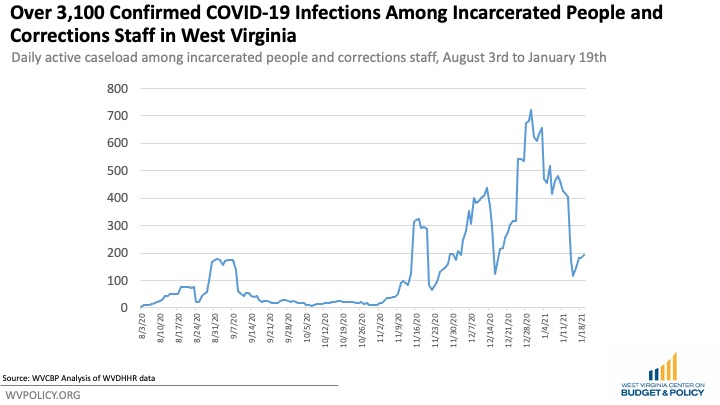
The death penalty has been abolished in West Virginia since 1965, something many in the Mountain State take great pride in. But now, amid nationwide efforts to further expand the abolition of capital punishment, West Virginia legislators have introduced multiple bills attempting to reimplement the shameful practice.
Our colleague and friend from the ACLU of WV and the WV Criminal Law Reform Coalition, Greg Whittington, wrote a powerful op-ed opposing such a backward move. Excerpt below:
The evidence is clear: Criminalizing more and more behaviors and increasing penalties have not made us safer. Instead, we are the most-imprisoned society on Earth, with communities of color suffering the most.
For decades, policymakers operated on the misguided belief that harsher penalties would cure our culture of crime. That hasn’t happened.
It’s time to shift the conversation, not double-down on the worst ideas from half a century ago.
Any effective corrections program must focus on the possibility of rehabilitation. The death penalty is not justice. It’s revenge. It would only add to the layers of generational trauma brought on by a stagnant economy, the opioid epidemic and so many shattered communities.
We must never give up on our fellow West Virginians, because there is always a chance for rehabilitation.
Read the full op-ed here.
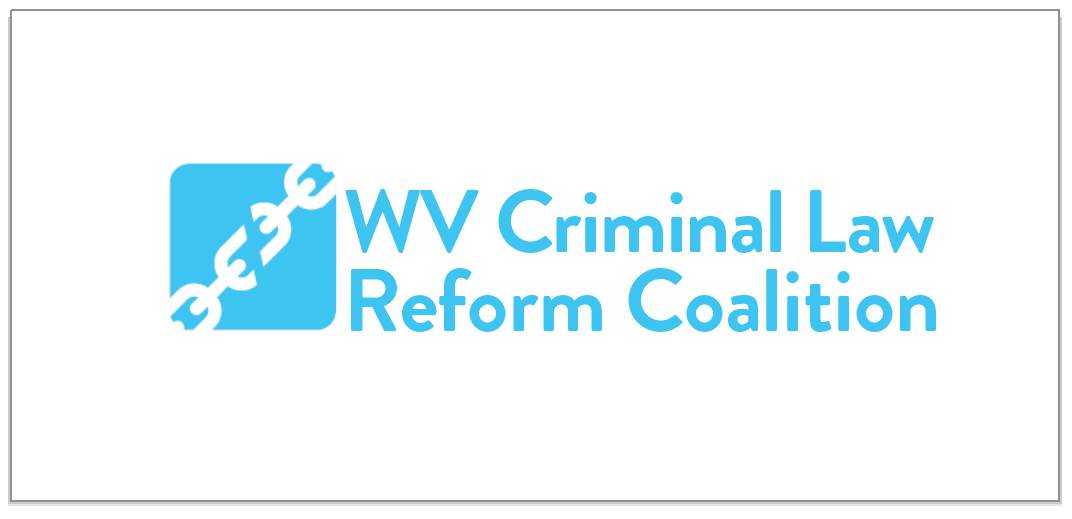
As Solutions Oriented Addiction Response’s (SOAR) harm reduction efforts come under threat, WVCBP reaffirms our full support of the organization’s life-saving work.
At the end of 2020, we published a blog exploring the surge in HIV and Hepatitis C cases in Kanawha County largely due to the sharing of needles to inject drugs, and how syringe services programs (SSPs) like those operated by SOAR play a critical role in reducing the spread of these diseases. SSPs are effective, cost-saving, and treat those in our community who inject drugs with the dignity that all folks deserve.
Currently, SOAR’s work is deemed 100% legal in Charleston. Over the next few weeks, Charleston City Council will likely vote on a new ordinance that would make SOAR’s current harm reduction program a misdemeanor with hefty fines. If this ordinance were to pass, it would also make Charleston the first West Virginia city to outlaw an active harm reduction program.
In the wake of the U.S. Centers for Disease Control and Prevention calling the HIV outbreak in the Kanawha Valley “the most concerning in the nation,” we partnered with the ACLU of WV and other community organizations to demand Charleston city leaders start listening to science and stop leading with fear. Read the full letter here.
If you are a Charleston resident, we invite you to join us in contacting your City Council Member and voicing your support for the full authorization of SOAR’s work.
Not sure who your Council Member is? There’s a handy map here and a list of contact information here.
Again, we at WVCBP wholeheartedly believe that SOAR’s work makes the Charleston community both kinder and safer. We would sincerely appreciate if you contacted your Council Member and expressed support for SOAR’s work.

We are now accepting applications for the summer of 2021! Priority will be given to applications received by February 26, 2021.
WVCBP seeks a summer policy associate for an internship to work on issues associated with our research and advocacy priorities. Our summer policy associates work closely with WVCBP staff, coalition partners, and stakeholders in an immersive experience in research and advocacy for evidence-based solutions, policies, and practices surrounding issues that impact low- and moderate-income West Virginians.
The WVCBP internship program’s mission is to partner our organization with highly motivated undergraduate and graduate students committed to building shared prosperity through policy change. Our internship program prepares students for potential employment in the non-profit policy world by training them to conduct rigorous data and policy analysis or outreach and advocacy while developing effective communications strategies.
Find the full job posting and instructions to apply here.
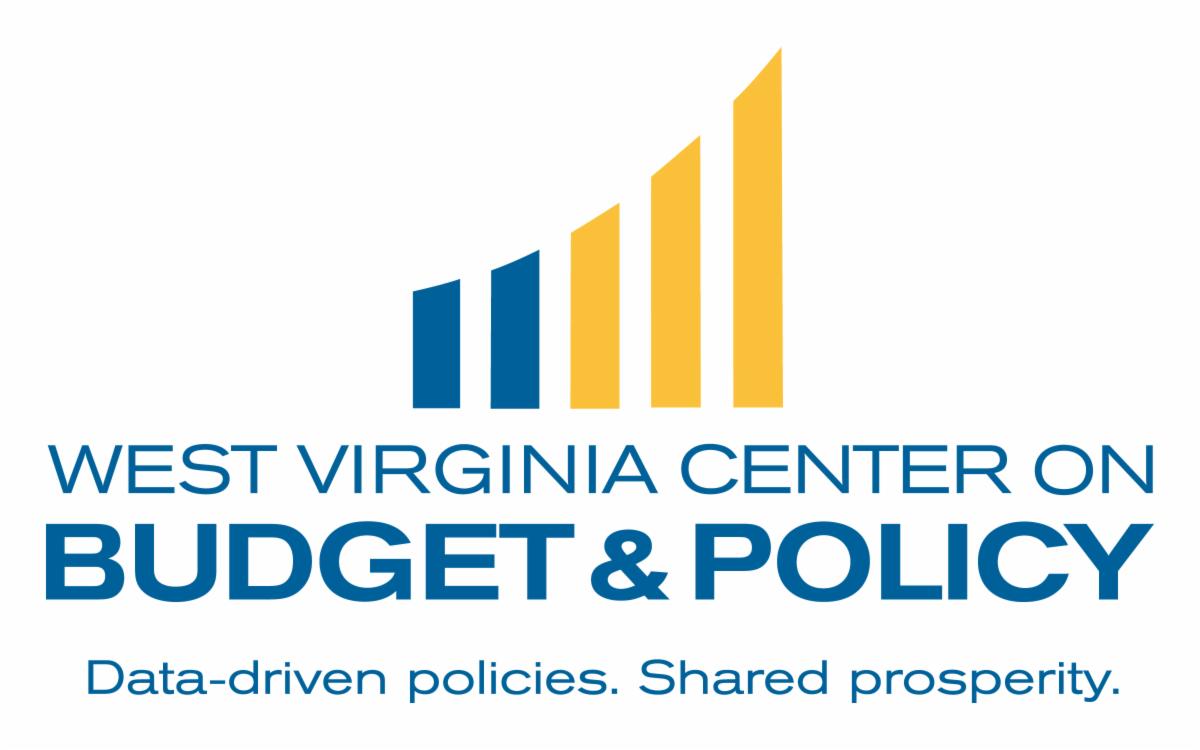
WVCBP’s Summer Policy Institute (SPI) is an annual event for college students and young people interested in bettering West Virginia through policy change. SPI brings together highly qualified traditional and non-traditional college students and young people to build policy knowledge, leadership skills, and networks.
Attendees participate in interactive sessions where they learn the basics of data, policy, and state government and build their organizing and advocacy skills. Throughout the convening, attendees work in small groups to identify and develop policy proposals to shape the future they want to see in West Virginia, culminating in team “policy pitches” to state legislators and policy professionals. Many SPI attendees have gone on to continue advocating for their policy idea and to hold internships with West Virginia non-profits and in state government.
Applications for SPI are being considered through April 30. Further details and link to apply here.
